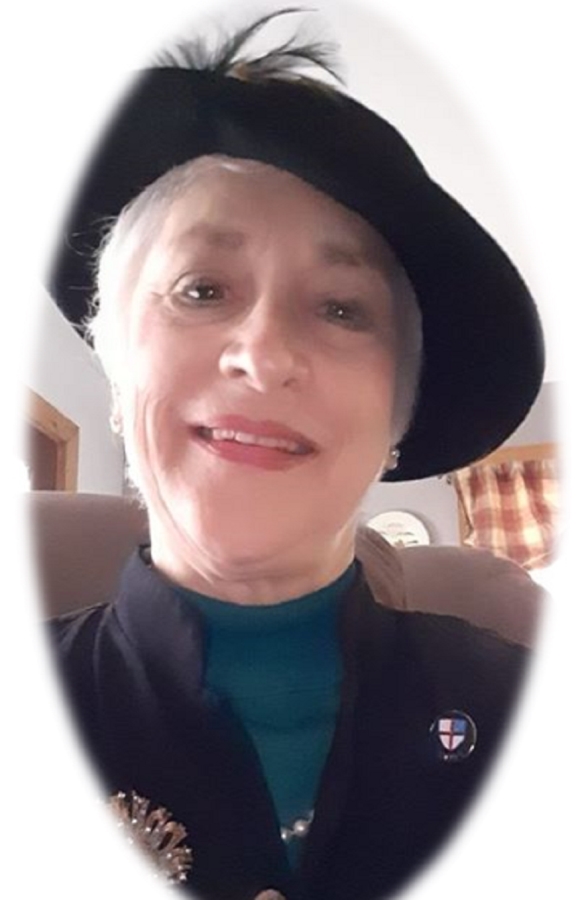In this premiere interview with the author lies a meaningful and honest discussion of issues beyond the book’s pages.
How did you begin on the journey of writing a Christian historical fiction novel?
I felt like I was spinning my wheels trying to interest people in my children’s books. Add that disappointment with an idea I had during my teenage years, and the desire to write that idea became my driving force.
How did your childhood memories and experiences develop your storylines?
As a teenager, I heard an allegory in church about the saddest place in Heaven, and that message has remained with me all these years.
Whenever I spoke with friends about this allegory, I was surprised how many people had never heard of it. I knew then I had to tell my story.
My childhood memories, family activities, and acquaintances formed the framework for The Warehouse. For example, my paternal grandfather grew up in Missouri, while my maternal grandfather settled in the wilderness of Florida territory. My imagination and some factual information did the rest.
Are you aiming for the book to be a standalone piece, or are you intending to create a cohesive body of work with interconnections between each book?
Although readers have asked me that question before, I have never considered a sequel to The Warehouse. It would take much thought to develop it, but when the Lord is ready to continue the story, I will know it.
Katie surviving the accident was a miracle. Do you personally believe in miracles, and why?
Yes, I do believe in miracles. I believe that God can do anything for, in, and through us. Victor Burton, my daddy, is one of those miracles. He nearly did not make it through WWII alive, and the story he told was nothing but a miracle. I also believe there are untold numbers of tiny miracles around us, things we take for granted. If we open our eyes and minds, God will reveal them.
The Warehouse’s characters are undoubtedly engaging. What do you think are the things that need to be considered when writing plausible characters?
Readers are searching for characters who reflect themselves and their situations. When I develop characters, I stop to consider if my readers will find the protagonist believable and let the readers empathize with them. Character flaws create both interest and conflict. If a reader relates to the protagonist, the reader will cheer for that character. Conversely, if a reader does not like an antagonist and that character is written well, the reader’s mood will reflect that, too. Empathy creates loyal readers.
In the book, some have received more blessings and gifts than others. Why shouldn’t we think that God is a biased God?
None of us has the same gift or level of gift, skill, talent, etc. However, God has given us free will and the ability to develop our talents.
God knows each of our hearts and provides for our daily needs. We don’t all have the same gifts, nor do we have the same needs. What we do have is the same God who has given us our abilities. Ours is to use our abilities to cultivate stronger gifts, then use those gifts to the glory of God.
How did you find the names of the characters?
That is a difficult question with an answer that may sound trite.
As far as The Warehouse, I can’t say how I chose names. Some names I borrowed from people I knew and admired, i.e., family names or a combination of names of people I hold dear. I also try to couple names with character strengths and weaknesses.
An example, In the second part of the book, I use a name for the town gossip. I once thought that name sounded weak. Then I remembered a strong president’s wife with that name, and the tenor of the name changed for me. Based on my feelings for the name, I wrote the female protagonist’s identity before and after receiving her gift.
Also, in the second part, I wrote Mr. Kelly. I remember a citizen of our little town who was larger-than-life, boisterous, but gentle. Although he never boasted of his money or the size of his herds, the townspeople knew him to be a wealthy cattleman who sported bushy white eyebrows, wore dung-encrusted boots, and an oversized belt buckle. This man made an impression on this six-year-old girl.
The short answer is I use my imagination and God’s inspiration when naming and developing my characters.
Did you take anything from personal experience?
Yes. Many incidents were personal incidents, i.e., enjoying family Thanksgiving dinner where, before dinner, the men of my family brought in harvested sugarcane stalks to grind the cane for its juice. I remember being four years old and riding the mule that pulled the mill pole. I remember running through our small town to wave to the train. Katie’s playing store was part of my life, as was climbing on top of the swing set and seeing a baby bat. I would say this is a very personal story.
How do you come up with the names of your characters? (duplicate question)
New question:
What is your style of writing? How do you write to capture your readers?
When I start writing, I get down ideas or the storyline. Next, I go back and paint a word picture so the reader will see, hear, touch, smell, or taste what I write. Painting word pictures allows the reader to experience the story more deeply.
What important advice would you give to people who are facing life’s challenges?
I went through my own difficult years, and what I learned from others was, “Get your eyes off of God’s hands and onto His face.” This advice gave me a whole new perspective on my life.
Another inspirational saying was, “Look up. See God’s wonders.”
So, my advice would be the same to other people going through difficult times. Look Up! Spend some time considering the miracles of God’s creation and how He remains in control of all the Heavenly bodies, the majority we cannot see. God is in control. Then remember Romans 8:28, “And we know that all things work together for good to them that love God, to them who are the called according to his purpose.” What is our purpose? To understand the character of a compassionate God and to enjoy Him forever.”
Get this book on Amazon. Grab your own copy now!




